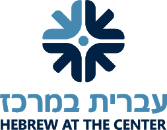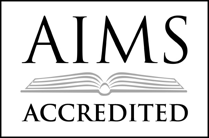JPDS-NC Selected as Demo School for Hebrew Language Education
November 13, 2014 by
JPDS-NC has been selected to serve as a demo school for our approach to teaching and learning Hebrew. Ivrit B’Merkaz or Hebrew at the Center (HATC), an organization that is at the forefront of advancing Hebrew language teaching and learning, has identified JPDS-NC as a resource for Hebrew language educators teaching in schools across the nation.
JPDS-NC uses the Proficiency Approach in Hebrew. The Proficiency Approach embraces an adaptable, learnerscentered environment that takes into account various language learning styles and the utilization of multiple pedagogical strategies. It is considered the most efficient framework for the acquisition of a learned language in an academic setting because its approach helps learners internalize the language. Hebrew at the Center utilized research from several national initiatives, including the President’s Commission on Foreign Languages and International Studies, The American Council on the Teaching of Foreign Languages, as well as expertise from guidelines developed at Brandeis University and more recently, Middlebury College in developing models that invest in teachers as they positively impact learners.
For the past nine years, JPDS-NC has been working alongside HATC to develop a systematic and systemic approach to Hebrew language education that seamlessly carries across the grades. In 2005, our Hebrew program utilized a collection of different programs and curricula: in the early childhood grades, we taught using the Maalah approach; in first and second grades, we taught Tal Am; and in the upper grades, our program used Chaverim B’Ivrit and other Hebrew book series. The children were learning Hebrew, but we were looking for a more dynamic, iterative process that would yield more clearly demonstrable student progress.
In spring 2007, Vardit Ringvald, the founder of Hebrew at the Center (at the time, a relatively new organization), came to JPDS-NC to conduct an initial survey of our needs and practices in the teaching of Hebrew language. She reported what we already knew, and suggested significant changes including more coordination and consolidation of the Hebrew language program across all grades. In late 2007, Shoshana Sfarzada (now our Hebrew Instructional Leader, Grades 2-6), Vered Goldstein (now our Hebrew Instructional Leaders, Grades PreK-1), and Sharon Freundel (Director of Hebrew and Judaic Studies) attended their first seminar. They learned all about the Proficiency Approach, its fundamental principles, and how to begin implementing it. Since that time, various members of our faculty have attended a number of workshops, experts have come to JPDS-NC to offer professional training, our teachers have visited other HATC schools, and faculty members have participated in remote learning sessions as well. Shoshana and Vered have gained a great deal of expertise in creating and implementing units and lessons, and together the faculty has created a logical scope and sequence for expanding the students’ learning and growth in the four language skills: reading, writing, verbal comprehension, and speaking.
Over the course of the past seven years, we have been implementing changes, assessing progress, analyzing data, adapting techniques and curricula, and setting goals. We began by implementing the new program in the upper grades, then added early childhood grades, and finally transitioned 1st and 2nd grades so that now, all students at JPDS-NC are taught Hebrew using the Proficiency Approach as a basis for learning.
JPDS-NC is delighted to receive this honor and to serve as a leading resource for Jewish education. We are grateful for our positive partnering with HATC and for the vision of the administration, the inspired instructional leadership of Sharon, Shoshana and Vered, and the hard work and commitment of our outstanding faculty.






